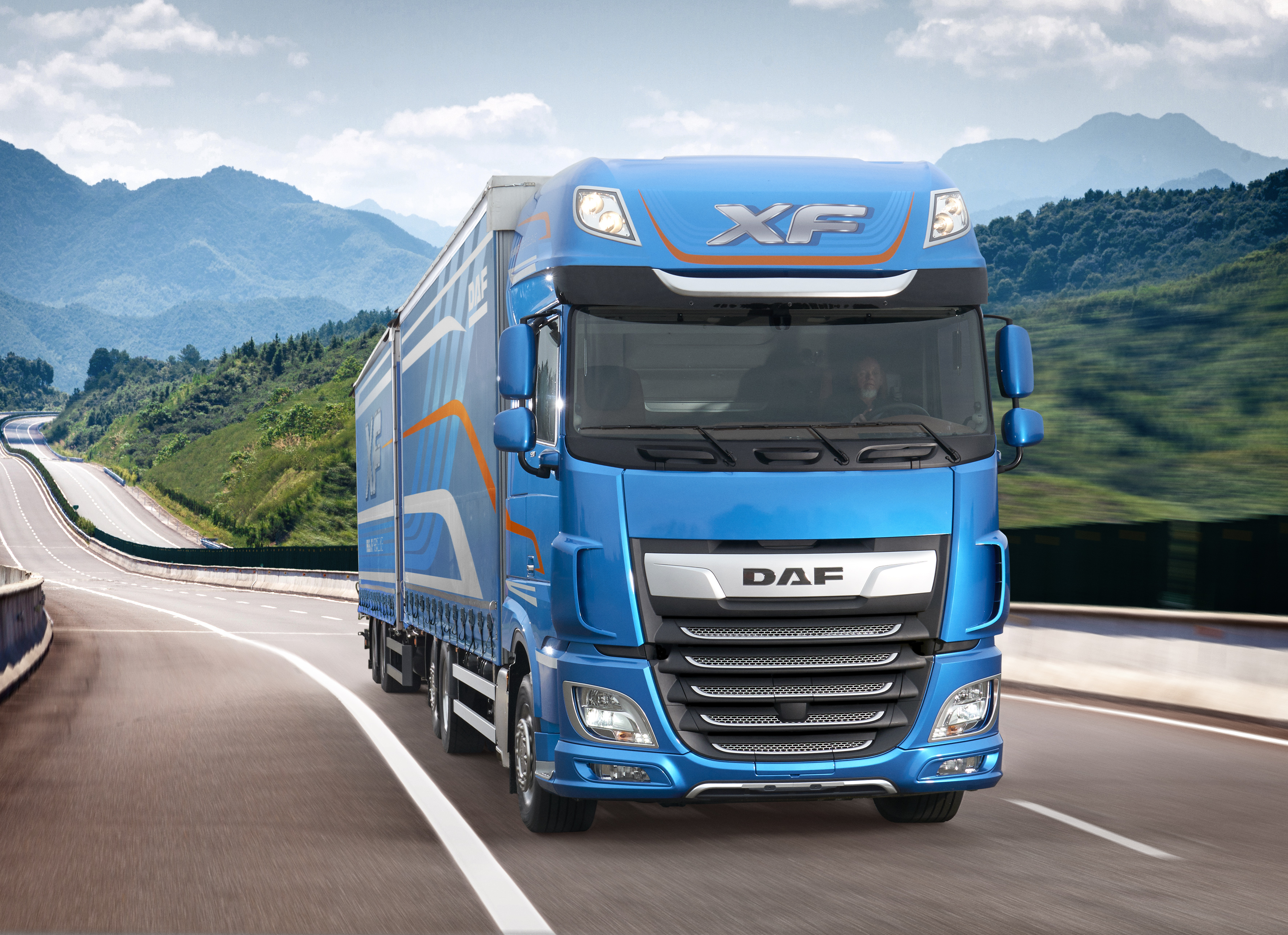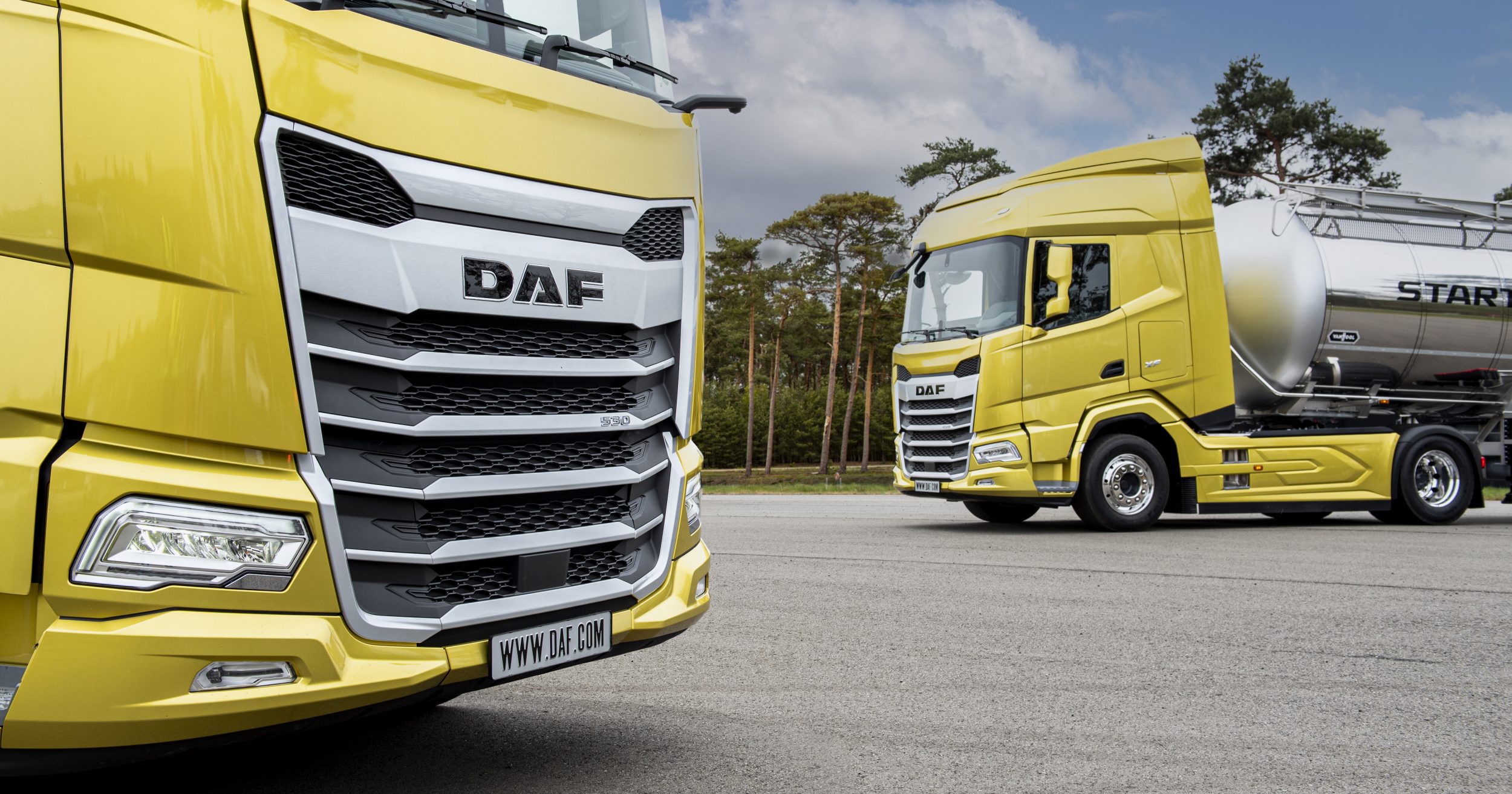Daf Trucks For Sale In USA: Understanding the Reality Beyond the Dream types.truckstrend.com
For many truck enthusiasts and logistics professionals worldwide, the name DAF conjures images of robust, fuel-efficient, and driver-friendly heavy-duty trucks dominating European highways. A subsidiary of PACCAR, the same parent company behind iconic American brands like Kenworth and Peterbilt, DAF has carved out a formidable reputation for innovation, reliability, and low operating costs across the globe. Naturally, this leads many in the United States to wonder: Are DAF trucks for sale in USA? And if so, how can one acquire these highly regarded vehicles?
The simple, yet often disappointing, answer for those seeking to purchase a brand-new, federally compliant DAF truck in the United States for commercial use is: No, not directly, and not in the way one would purchase a Kenworth, Peterbilt, or Volvo. While DAF is a global player and a sibling company to some of America’s most beloved truck brands, the reality of the US market, its unique regulatory landscape, and its established distribution channels make the direct sale of DAF trucks in the USA an anomaly rather than a common occurrence.
Daf Trucks For Sale In USA: Understanding the Reality Beyond the Dream
This comprehensive article will delve deep into the intricacies surrounding "Daf Trucks For Sale In USA," exploring why they aren’t readily available, the formidable challenges of importing them, the extremely rare exceptions, and what American trucking companies and owner-operators should consider instead. Our aim is to provide a clear, informative, and practical guide for anyone curious about bringing a DAF truck onto American soil.
Understanding DAF Trucks: A European Engineering Marvel
Before addressing their availability in the US, it’s crucial to understand what makes DAF trucks so appealing in their primary markets. Based in Eindhoven, Netherlands, DAF Trucks N.V. has a rich history dating back to 1928. They are renowned for manufacturing a comprehensive range of light, medium, and heavy-duty commercial vehicles, as well as components like axles and engines.
DAF’s product line typically includes:
- DAF XF Series: Their flagship long-haul, heavy-duty truck, celebrated for its spacious cabs, fuel efficiency, and advanced driver-assistance systems.
- DAF CF Series: A versatile all-rounder, suitable for a wide range of applications from regional distribution to construction and special transport.
- DAF LF Series: A nimble light-to-medium duty truck, ideal for urban distribution and municipal services.

Across Europe, the Middle East, Africa, and parts of Asia, DAF trucks are praised for their:
- Fuel Economy: Often leading in their segments due to efficient powertrains and aerodynamic designs.
- Driver Comfort: Ergonomically designed cabs with ample space, high-quality interiors, and intuitive controls.
- Reliability & Durability: Built to withstand demanding commercial operations.
- Advanced Technology: Incorporating cutting-edge safety features, connectivity solutions, and telematics.
.jpg)
Given these impressive attributes, it’s no wonder that some American operators might look across the Atlantic with envy, hoping to harness DAF’s advantages for their own fleets.

The Regulatory Roadblock: Why DAF Isn’t "For Sale" in the USA
The primary reason DAF trucks are not officially "for sale" in the USA stems from fundamental differences in regulatory standards between the European Union (EU) and the United States. Unlike passenger vehicles, where some global manufacturers produce "world cars" that meet multiple standards, heavy trucks face unique and stringent requirements that make cross-continental compliance exceptionally challenging and prohibitively expensive.
Here are the key regulatory hurdles:
-
Emissions Standards: The US Environmental Protection Agency (EPA) mandates highly specific emissions standards (e.g., EPA 2010, EPA 2017) that differ significantly from the European Euro V and Euro VI standards. Adapting DAF’s PACCAR MX engines (which are related to US PACCAR engines but designed for European emissions) to meet US EPA requirements would necessitate extensive re-engineering, testing, and certification for each engine variant. This process alone can cost millions of dollars and years of development.
-
Safety Standards (FMVSS vs. ECE): The US Federal Motor Vehicle Safety Standards (FMVSS) dictate everything from braking performance, lighting configurations, crashworthiness, seatbelt design, and tire specifications. These differ from the European ECE Regulations. For example, US headlights and taillights have distinct requirements for beam patterns and illumination, and braking systems (ABS, stability control) must meet specific US performance tests. Certifying a DAF truck to FMVSS would require redesigning and retesting numerous components.
-
Dimensional and Weight Regulations: While seemingly minor, US regulations regarding overall vehicle length, width, height, and axle weight limits can differ from European norms. European trucks often have shorter overall lengths to accommodate longer trailers within EU limits, and their cabin dimensions might not align perfectly with US preferences or bridge formulas.
-
Service and Parts Network: Even if regulatory hurdles were overcome, establishing a nationwide dealer and service network, stocking millions of dollars in spare parts, and training technicians would be an enormous undertaking. Without this infrastructure, even a compliant DAF truck would be a logistical nightmare to maintain and repair.
-
Homologation Costs vs. Market Share: The cost to "homologate" (certify) even a single DAF model for the US market runs into the tens, if not hundreds, of millions of dollars. For DAF to justify this investment, they would need to project significant market share against established domestic players like Freightliner, Peterbilt, Kenworth, Volvo Trucks North America, and Mack. Given the fiercely competitive nature of the US truck market and their existing PACCAR brands, it’s an investment they have clearly deemed unnecessary and unprofitable.
Navigating the Grey Market: The Rare Exceptions (and Their Perils)
Despite the formidable barriers, the question persists: Are there any DAF trucks in the USA? The answer is a highly qualified "yes," but these are almost exclusively found in niche, non-commercial contexts, or through the perilous grey market.
-
The 25-Year Rule (Classic Vehicle Exemption): The most common (though still rare) way a DAF truck might legally enter the US is if it is over 25 years old. Under US import regulations, vehicles aged 25 years or older are exempt from FMVSS and EPA compliance, as they are considered "collector’s items" or "classics." These vehicles are typically imported for hobby use, car shows, or private collections, and are generally not intended for commercial hauling or regular road use. Finding an operational 25-year-old DAF truck, let alone one in good condition, is a challenge, and parts availability remains a significant issue.
-
Show or Display Vehicles: In extremely rare instances, a vehicle can be imported under a "Show or Display" exemption. This is usually for unique, historically significant, or technologically advanced vehicles that will not be driven more than 2,500 miles per year and are not for commercial purposes. Obtaining this exemption is difficult and requires specific approval from the National Highway Traffic Safety Administration (NHTSA).
-
Temporary Imports: DAF trucks might be temporarily imported for specific events (e.g., trade shows, testing, or military exercises) but must be exported after a set period. These are not "for sale" to the general public.
-
Independent Importers / Grey Market: This is the riskiest and often illegal route. Some individuals or small companies might attempt to import non-compliant DAF trucks, often by misrepresenting them to customs or exploiting loopholes. This is highly discouraged and comes with severe consequences.
- Legal Risks: Trucks imported this way are not federally compliant and cannot be legally registered for commercial operation in most, if not all, US states. They risk seizure by customs, significant fines, and even criminal charges.
- No Support: There is no warranty, no recall support, and no official parts or service network.
- Resale Value: A non-compliant vehicle has virtually no resale value, making it an expensive paperweight.
Practical Advice: For anyone seriously considering a DAF truck in the USA, the overwhelming advice is to DO NOT ATTEMPT TO IMPORT A MODERN DAF TRUCK FOR COMMERCIAL USE. The legal, financial, and logistical hurdles are insurmountable for the vast majority of individuals and businesses.
The Challenges of Owning a Non-Compliant DAF in the USA
Should one manage to acquire a DAF truck (likely an older, exempt model or via the grey market), the challenges of ownership are immense:
- Registration and Legality: Obtaining a legal commercial registration for a non-compliant vehicle is nearly impossible. This means it cannot be used for its intended purpose of hauling freight.
- Insurance: Commercial insurance companies are highly unlikely to provide coverage for a vehicle that does not meet US federal standards and cannot be legally registered for commercial operation.
- Maintenance and Parts: This is perhaps the biggest headache. Without an official dealer network, sourcing genuine DAF parts is a nightmare. Owners would be reliant on international suppliers, which means long shipping times, high costs, and potential customs delays. Finding mechanics familiar with DAF’s specific engineering (e.g., their electrical systems, engine diagnostics) is also extremely difficult. Downtime would be extensive.
- Resale Value: As previously mentioned, a non-compliant DAF truck has almost no resale value in the US market. It’s an investment that will not yield returns.
- Safety and Reliability: Operating a vehicle without proper maintenance, genuine parts, and expert service can compromise its safety and reliability, leading to breakdowns and potential hazards.
Alternative Solutions for US Trucking Needs
For US-based trucking companies and owner-operators, the pragmatic and logical solution is to focus on the excellent range of trucks already available and fully supported within the North American market. These brands offer robust performance, extensive dealer networks, readily available parts, and full regulatory compliance:
- PACCAR Brands: Kenworth and Peterbilt (DAF’s siblings) offer premium, driver-focused trucks with similar PACCAR MX engines (though specifically designed for US emissions) and advanced technologies.
- Volvo Trucks North America: Known for their fuel efficiency, safety, and integrated powertrains.
- Mack Trucks: A classic American brand, renowned for durability and vocational applications.
- Freightliner: The market leader, offering a wide range of models for various applications, known for efficiency and technology.
- International Trucks: Offering a strong lineup of trucks for line-haul, vocational, and medium-duty applications.
These domestic and North American-compliant international brands offer all the benefits one might seek from a DAF truck—fuel efficiency, driver comfort, reliability, and advanced features—but with the crucial added advantage of full legal compliance, robust parts and service networks, and strong resale value.
Daf Trucks For Sale In USA: Hypothetical Price & Availability Table
As established, DAF trucks are generally not "for sale" in the USA in a conventional sense for commercial use. The following table illustrates the hypothetical scenario, emphasizing the lack of official availability and the immense costs/challenges associated with any potential presence.
| DAF Model (Typical EU) | Estimated European New Price (USD Equivalent) | Status in USA (for Commercial Use) | Hypothetical Import & Homologation Costs (Estimate) | Grey Market / Older Models (Availability & Price) | Notes on USA Availability |
|---|
